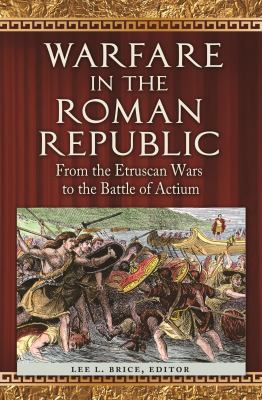
Book
|
Warfare in the Roman Republic : from the Etruscan Wars to the Battle of Actium
Copies
1 Total copies, 1 Copies are in,
0 Copies are out.
Title
Warfare in the Roman Republic : from the Etruscan Wars to the Battle of Actium
Call No
DG89
Authors
Language
English
Published
Santa Barbara, California : ABC-CLIO, [2014]
Publication Desc
xviii, 338 pages : illustrations, map ;
ISBN
9781610692984
(alk. paper)
LCCN
2013048640
Target Audience
General
Dimensions
25 cm









